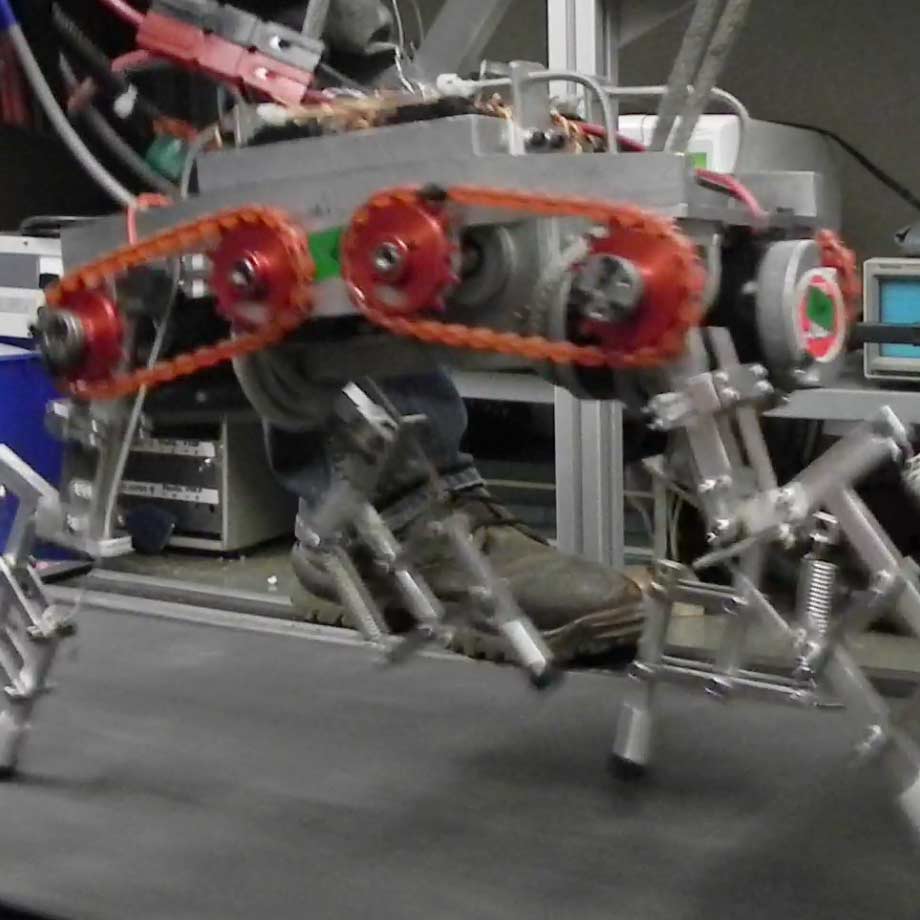Based on annual faculty activity report data, as well as proposal and grant data, the Department of Mechanical Engineering is pleased to recognize Prof. Jake Abbott as our researcher of the year. Jake is well-known in the robotics community for his work on magnetic manipulation, haptics, and telerobotics. The application of his work includes medical microrobots, magnetic guidance of a cochlear implant and robot-assisted rehabilitation. For more information about Jake’s research, visit http://www.telerobotics.utah.edu....
Read MoreProf. Leang and collaborators receive new $3.8M NSF funding to work on electroactive polymer materials for soft robotics
Kam Leang in collaboration with UNLV-led team (Kwang J. Kim and Paul Oh) and other researchers receive new $3.8M NSF funding to work on electroactive polymer materials for soft robotics. Goal and Objectives: This international project addresses a technologically important issues in soft robotics. Soft robotics is an important emerging field in robotics, mechatronics, and automation. Soft robotic components and systems offer new features and advances over conventional robotic devices. This project focuses on the creation of advanced multifunctional artificial muscles (AM) based on new polymer-metal composites which can be used in soft robotic applications. Artificial muscles can be transformative for...
Read MoreProf. Meek receives new NIH grant to work on Quadrupedal Human-Assistive Robotic Platform (Q-HARP)
NRI: Collaborative Research: Quadrupedal Human-Assistive Robotic Platform (Q-HARP) Prof. Meek receives new 3-year $119,523 NIH grant to work on Quadrupedal Human-Assistive Robotic Platform (Q-HARP). Aging of the population has become a long-term trend in the United States. According to The State of Aging and Health in America, the U.S. population aged 65 and older is expected to double during the 25 years following 2007, and there will be 71 million American older adults, accounting for approximately 20% of the U.S. population by 2030. For the health and wellbeing of older adults, a key factor is being physically active. However,...
Read MoreProf. Leang receives NSF grant to work on temporal-spatial control of dual-stage nanopositioning systems
Prof. Leang and collaborators from industry (Molecular Vista, Inc. (MVI)) and Villanova University (Prof. Garrett Clayton) received a new NSF grant ($305,912) from Sensors, Dynamics, & Control program to study new design and control system approaches for the development of advanced nanopositioning systems for nanoscale science and engineering applications. More specifically, the new 3-year NSF collaborative Grant Opportunities for Academic Liaison with Industry (GOALI) research project focuses on new design and control paradigms for dual-stage nanopositioners that consider both spatial and temporal constraints. Emerging dual-stage nanopositioners have the unique ability to achieve both long-range and high-speed operation. However, typical control strategies rely on frequency-based...
Read MoreProf. Meek’s NSF NRI project results in quadruped robot trotting
The video shows the quadruped robot trotting on a treadmill test fixture. The legs have fixed springs. There are no sensors or control except for the motion of the hips and shoulders. This is a demonstration of the passive stability with directionally compliant legs. This research project is led by robotics faculty Prof. Sanford Meek. The project “NSF NRI grant: Biologically-inspired, hybrid quadruped robot control” is sponsored by the National Science Foundation. ...
Read More



